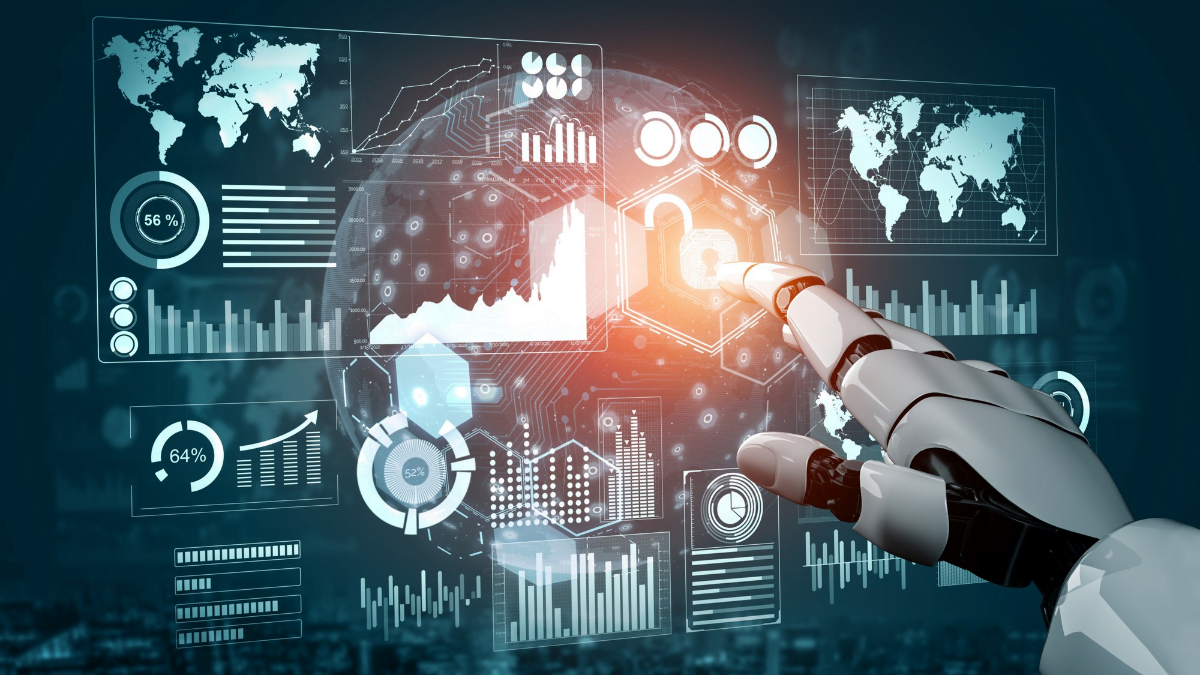As the world becomes increasingly digitized, Artificial Intelligence (AI) is set to transform many industries. AI is a broad term that refers to machines or software developed to carry out tasks that would usually require human intelligence. Examples include learning from experience, understanding natural language, recognizing patterns, and making decisions.
This transformative technology is expected to permeate every sector, from healthcare to manufacturing, finance, retail, and transportation. This article aims to delve into how AI will bring about significant changes in various sectors over the next decade.
AI in Healthcare: Diagnosis and Treatment
Healthcare stands at the cusp of a transformation brought about by the advent of AI. With AI, medical practitioners can harness advanced algorithms and computing power to improve diagnosis and treatment.
AI is already helping radiologists to detect tumors with greater accuracy.
Algorithms are being developed to predict patient risk factors for various diseases based on genetic, behavioral, and environmental factors.
Moreover, AI-powered virtual assistants are becoming increasingly sophisticated, providing personalized care to patients. These can provide medication reminders, answer health-related queries, and even alert healthcare professionals in emergencies. The result? An improved patient experience, more accurate diagnoses, and more effective treatments.

Manufacturing Transformed: The AI-Driven Paradigm Shift
In the manufacturing sector, AI is helping businesses increase efficiency and productivity while reducing costs. Companies use AI to automate routine tasks, reducing the likelihood of human error and allowing employees to focus on more complex tasks.
Quality control is another area where AI is making significant strides. Machine learning algorithms can analyze large amounts of data from production lines in real-time, identifying anomalies and predicting equipment failures before they occur.
Moreover, AI is revolutionizing supply chain management, helping businesses to anticipate demand, manage inventory more efficiently, and optimize delivery routes. Thus, AI is set to usher in a new age of productivity and efficiency in the manufacturing sector.
AI and Finance: Enhanced Decisions and Security
In the financial sector, AI is playing a significant role in everything from risk management to customer service. AI-driven algorithms analyze vast amounts of financial data, enabling institutions to make more accurate predictions and investment decisions.
Fraud detection is another area where AI excels. By recognizing patterns in large data sets, AI can identify suspicious activities and transactions much faster and more accurately than human analysts.
Personalized customer experiences are also becoming the norm, thanks to AI. Banks and financial institutions are using AI to tailor products and services to individual customers’ needs, improving customer satisfaction and loyalty.
Retail Reinvented: Personalized and Optimized Through AI
In retail, AI is improving both the customer experience and business operations. By analyzing customer data, AI can predict buying behavior and personalize product recommendations. This not only increases sales but also improves customer engagement and loyalty.
AI is also helping retailers manage inventory more efficiently. Predictive analytics can forecast demand for specific products, reducing the likelihood of stock-outs or excess inventory. This results in cost savings and improved customer satisfaction.

Transportation Redefined: The AI Road Ahead
In the transportation sector, AI is driving the development of autonomous vehicles. AI systems in these vehicles can analyze data from various sensors to navigate roads, avoid obstacles, and make decisions such as when to brake or accelerate.
AI is also helping to optimize traffic flow in cities, reducing congestion and improving safety. By analyzing traffic data in real-time, AI can adjust traffic light timings and suggest optimal routes for drivers.
Challenges: The Roadblocks in AI Implementation
Despite the enormous potential of AI, there are still significant challenges to overcome. These include data security concerns, ethical considerations related to AI decision-making, and the potential job losses due to automation. These issues require thoughtful solutions and a balanced approach to ensure that the benefits of AI are realized while minimizing its potential drawbacks.
Conclusion: Embracing the Future of AI
The transformative potential of AI is undeniable. While challenges remain, the benefits that AI can bring to sectors such as healthcare, manufacturing, finance, retail, and transportation are immense.
As we move further into the digital age, understanding the capabilities and implications of AI will be critical. Businesses, governments, and individuals who embrace AI’s potential will be best placed to thrive in this new era. Let’s prepare to welcome a future shaped and driven by artificial intelligence.
This post contains affiliate links.
Author

This article was written with the assistance of AI. Edited and fact-checked by Ronan Mullaney.
View all posts







